[ad_1]
Every relationship has its boundaries—some are openly discussed, like not being into partying, while others are just understood, like respecting each other’s privacy. When these boundaries are crossed, things can get complicated and even painful.
Take the case of this woman: She recently discovered a GPS tracking device in her car, which was registered under her boyfriend’s name. After confronting him, he deflected with emotional outbursts, hinting at self-harm, and even checking into the ER, but he’s since canceled therapy appointments. Keep reading to find out more about this unsettling situation and the difficult decisions she faces.
These days, geotracking has become common, with people using it for various reasons
![]()
Image credits: cottonbro studio/Pexels (not the actual photo)
A woman seeks advice online after discovering her boyfriend secretly installed a GPS tracker in her car
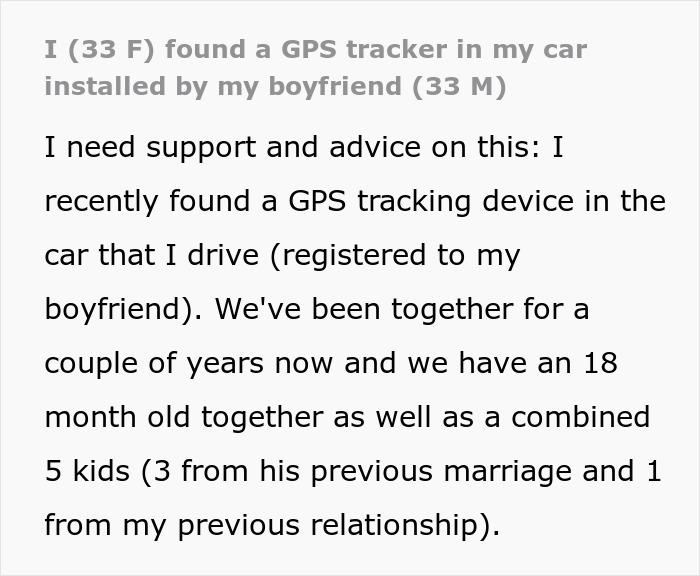

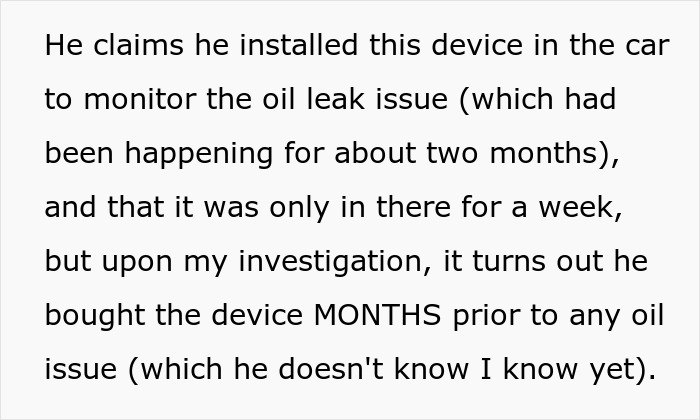
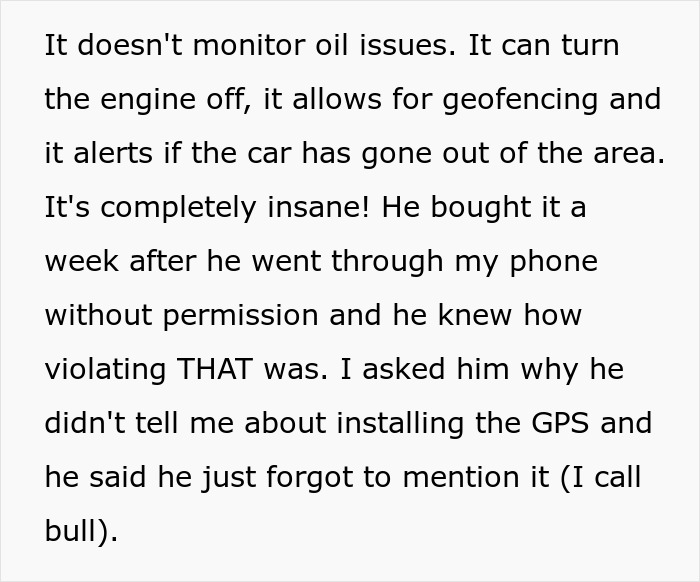
![]()
Image credits: Timur Weber/Pexels (not the actual photo)
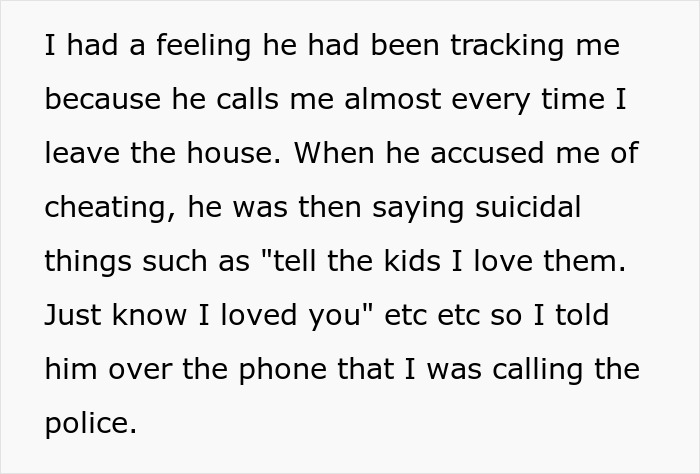
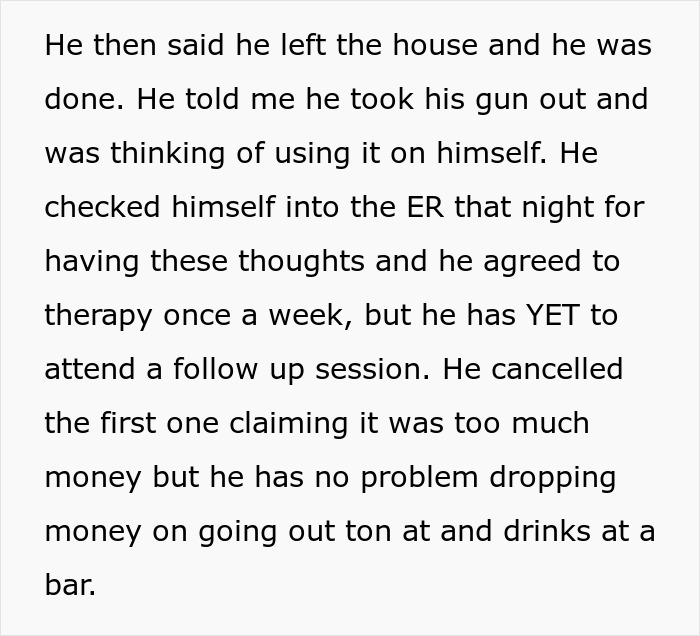
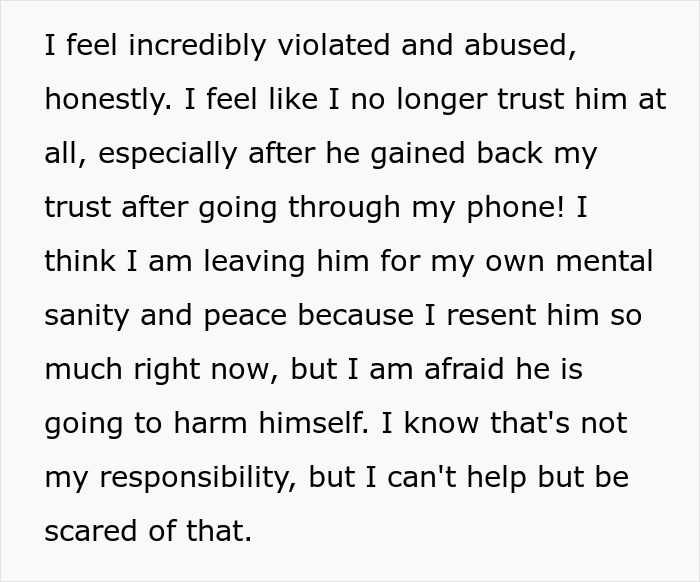
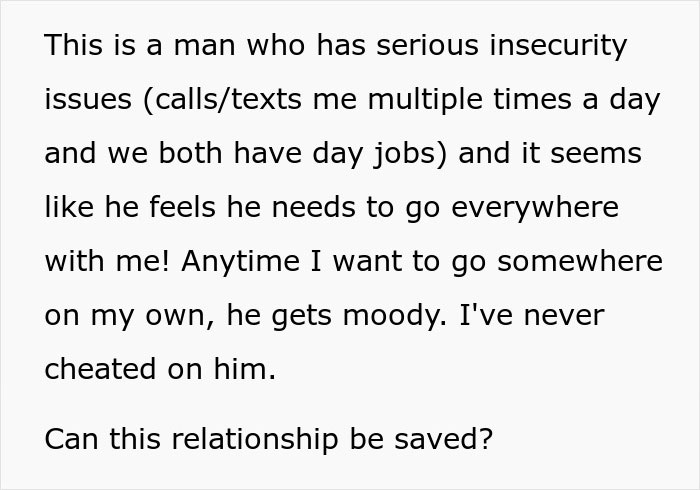
Image credits: Its2020NethingGoes
For some couples, sharing each other’s location feels perfectly normal and helpful, allowing them to stay connected and plan more easily
When you’re in a romantic relationship, you end up sharing a lot with your partner—your dreams, your goals, and even the bathroom. But when it comes to things like sharing your phone password or tracking each other’s location, it’s a whole different story. For some, it’s practical and reassuring; for others, it’s an invasion of privacy and feels controlling.
For many people, checking through their partner’s phones or pushing for location sharing can be a red flag. However, there are legitimate reasons for sharing such information, and couples have their own reasons for choosing what works for them.
For instance, if your partner has a long or risky commute, tracking them can be a way to ensure they’re safe, especially if they pass through sketchy areas. It’s also a handy way to know when they’ll be home, perfect for planning surprises or getting dinner ready.
Interestingly, a survey by WhistleOut found that 36% of Americans admit to snooping on their partner’s phone, and 58% think it’s okay to do so. This behavior spans across all ages and genders, showing that curiosity and doubts don’t discriminate.
Trying to check your partner’s phone or location can be seen as a sign of an unhealthy relationship dynamic
April Kilduff, a licensed therapist, advises caution: “I think it’s important to remember that boundaries and privacy are allowable in relationships. When you start checking someone’s phone, you erode the trust and the natural leap of faith you took when entering into the relationship.” She emphasizes that constantly monitoring a partner can weaken the foundation of trust you’ve built together.
Psychologically, our insecurity is often behind the urge to snoop. When someone doubts their partner’s faithfulness, spying might feel like the only way to calm those fears. But it can also become a slippery slope, leading to obsessive and paranoid behavior, making your partner feel micromanaged or controlled.
In healthy relationships, checking in might not be a big deal. But if things aren’t so solid, it could open the door to more toxic habits, normalizing unhealthy levels of surveillance. What are your thoughts on snooping in a relationship? Share your opinions in the comments below
Many people encouraged the woman to leave the relationship



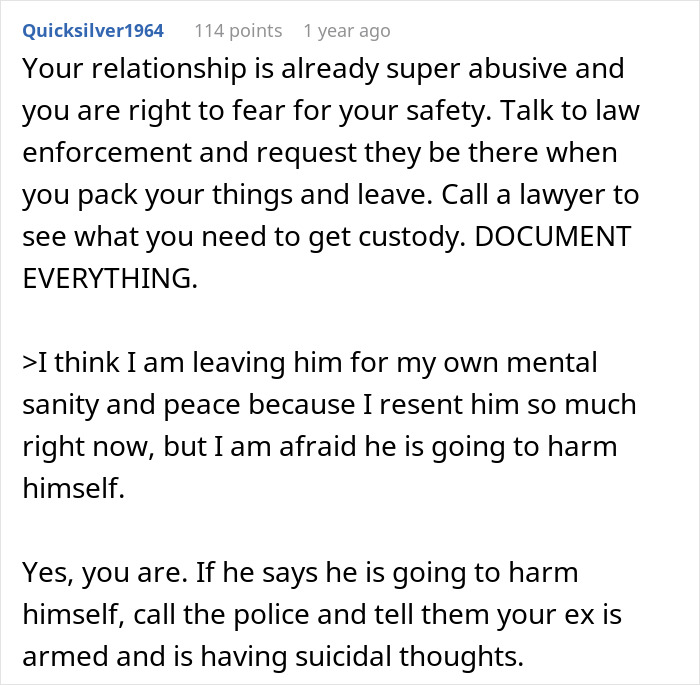
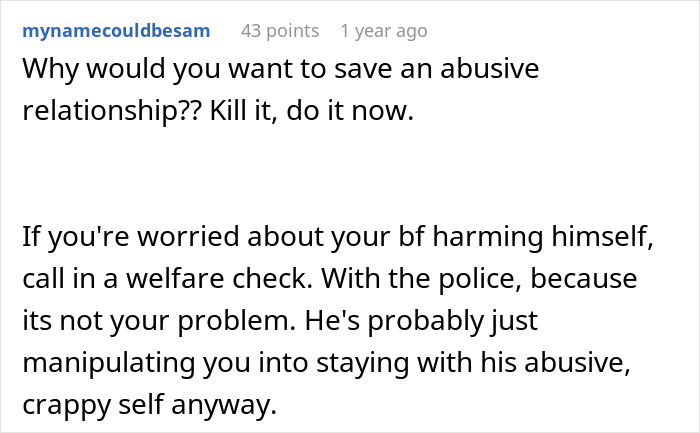



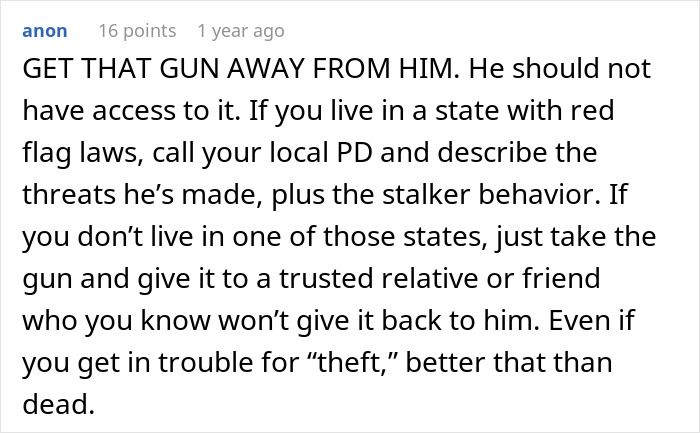


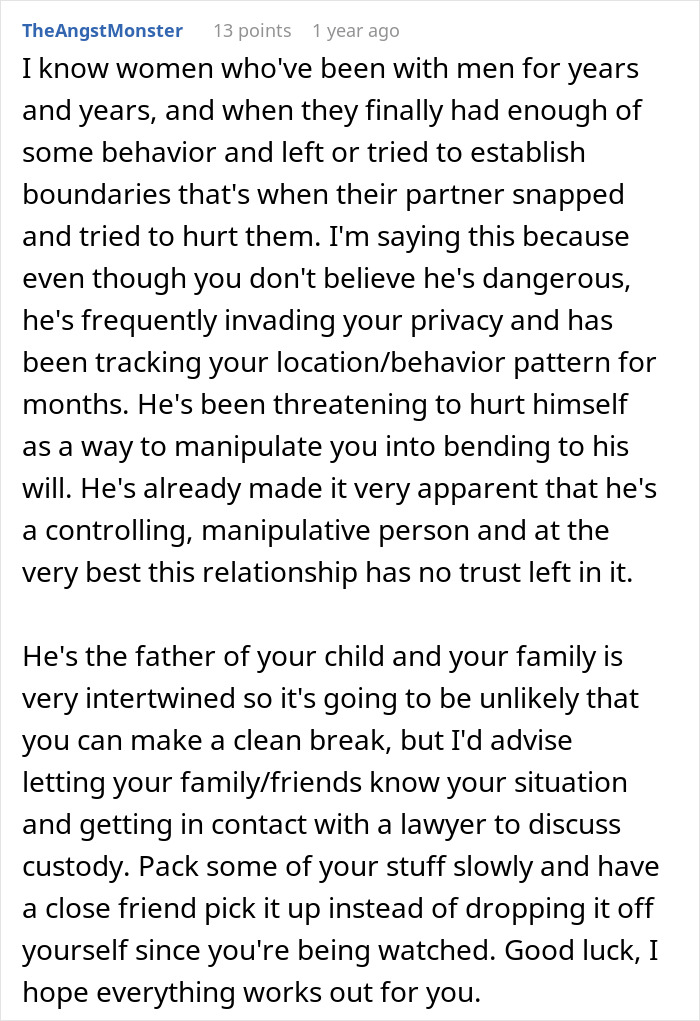

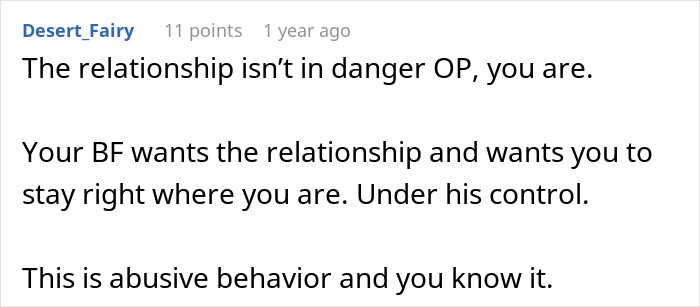

The post Man’s Paranoia Pushes Girlfriend To Choose Mental Sanity Over Relationship first appeared on Bored Panda.
[ad_2]
Source link






















